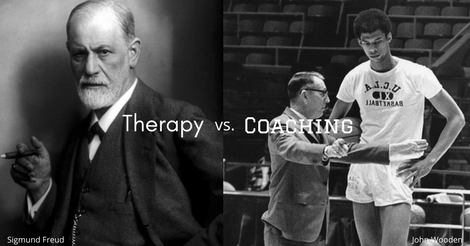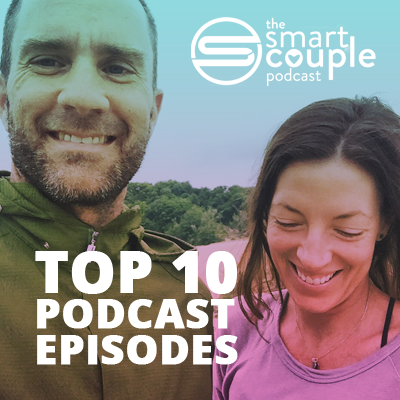At some point in an adult romantic relationship, you will be in pain. And, if you are smart, you will realize you need another objective person who is outside the relationship to help you through it.
And no, your friends and family members are not a good choice. They are often the worst place to go for relationship advice.
So, you’ll want to hire a professional.
But where to start?
The two main professionals people hire to help them with their relationship problems are psychotherapists and coaches.
But what is the difference? Well, I asked my friends (many of whom are coaches and therapists) and this is what they said (Some are quite opinionated on this one).
Of course, deciding on who to hire depends entirely on what you want and need. Are you going to resolve a childhood trauma, or are you just wanting to learn how to communicate better with your spouse? Do you want a mentor that has a successful marriage (which could be a psychotherapist or a coach) or do you want a mentor to teach you how to work through your own issues so you can empower yourself (teaching you how to fish)?
Your intention and desired outcome are EVERYTHING. So…
…Get clear on WHY you need help, what you need help with, and then find your person.
In this blog post, I want to offer you a few key pointers as to the difference between a therapist (psychotherapist) and a coach. Knowing the difference sometimes can help you make a better choice.
First, let’s get a few terms straight in order of time spent in formal education and training with Doctor at the top and coach at the bottom.
Psychiatrist– a medical practitioner specializing in the diagnosis and treatment of mental illness (Google). This person likes school. 8 years post undergrad study. They can diagnose and prescribe medication
Psychologist– an expert or specialist in psychology (Google). This person typically has a PsyD or a PhD and has extensive training in the study of human beings. They are trained in psychological tests, can diagnose, and cannot prescribe medication.
Psychotherapist (therapist)––a person who treats mental disorders by psychological rather than medical means (google). They can diagnose but not prescribe medication. Within psychotherapy, there are an endless amount of techniques such as Gestalt, Somatic Experiencing, Hakomi, Psychoanalysis, Hypnosis, Primal Scream therapy, Internal Family Systems, and on and on…
Coach– “A tutor who gives private or specialized teaching” (Google) Coaches often charge more than therapists or psychologists and sometimes more than Doctors. Again, LOTs of different types of coaching out there from Relationship coaching, Life coaching and Business coaching.
Spiritual healer– Whatever the person defines this as. Extremely subjective.
Here’s a quick summary of the difference between psychotherapy and coaching:
Psychotherapy (Therapy)
In general, psychotherapy is a long term solution used to treat childhood and adult trauma, disorders of the mind (mental illness), and a variety of diagnosis found in the DSM. It’s the main treatment recommendation for anxiety, depression and addiction. Therapy is also used by normal everyday folks with normal, everyday challenges. When you think of a therapist, think of an amazing listening friend, who accepts you no matter what you do.
Coaching
In general, coaching is results based, future focused, and looks to provide solutions to your problems to get you to the next level in your life. It’s about taking action steps to reach your goals. It’s typically short term 3-6 months, although people can have coaches for years. When you think of coaching, think of a sports coach, making you practice, holding you accountable, and cheering you on to help you reach your goals.
Here’s a longer summary including the good and bad of both
Of course, it’s not this simple, so here are a few more distinctions
Therapy
- Often takes longer
- Slow to create change
- Deals with more chronic problems such as anxiety and depression
- Has a much higher level of training (2-3 years and often much more clinical training)
- Is much more regulated and difficult to get a professional license (often 1000-5000 supervised clinical hours depending on the state).
- Training helps you understand deeper psychology
- Is affordable in a variety of settings. You can get reimbursed from your insurance company, but you’ll need a diagnosis in order to get your reimbursement
- Focuses on past traumas
- Can sequence trauma if body-centered
- Can give someone the experience of unconditional love if a parent was “never” there
- Helps people feel their feelings
- For “attachment” type work, therapy model is way more effective than coaching
- Victim-centered. Often the therapist becomes the rescuer. Supports the triangle model
- Is more support than challenge
- Relies on inaccurate stories and memories that are only half of it
- Tries to find the “resource” in a person’s body
Bad therapy:
- Turns into a coffee date
- Buying a loving friend instead of teaching a person how to make their own safe, loving relationships.
- Overly supports the victim model
- Charges you to re-tell the story over and over, which further embeds the trauma into your brain
- Doesn’t challenge you and your story enough
Good therapy:
- Can help you finally feel safe in your body
- Long-term therapy can help you have the experience of a secure attachment, which you may have missed as a child (this is long-term work)
- Can help you sequence life-long trauma and get empowered over a past hurt or trauma
- Is way underpriced
- Comes from a person who has a lot of life experience and training
- The therapist doesn’t hide behind a wall like in psychoanalysis (unless it is psychoanalysis)
- A good therapist is like a great mentor or parent, loving you through life’s challenges
Coaching
- Results-based and uses goals and timelines
- Teaches concrete skills that can be repeated by the client
- Is about forming new habits
- Works with limiting beliefs and attempts to help the person write a new story
- Believes in a person’s potential
- Trainings are short and lack depth can be weak
- Often stays on the surface and doesn’t address roots of behavior
- Mostly intellectual, not very embodied
- Can’t work with trauma effectively and doesn’t train to do so
- Works with “motivation” by pushing people and cheerleading. Disregards the MoVo
- Is more expensive
- Is more challenge than support
- Is less about feelings and more about actions and results
Bad coaching:
- Is like a band-aid for much deeper problems
- Never gets to the root of the issue
- Is often practiced by people that have little to no experience or training. (Like Yoga teachers, anyone can be one).
- Tries to cheer you up and offers simplistic advice like “just be grateful.”
- Just doesn’t deliver
Good coaching
- Gets results
- Holds you accountable to your goals and dreams
- Stays focused on the desired outcome and can help you address mental blocks along the way
- Is facilitated by someone very gifted and skilled
- Challenges you and supports you
- Is well worth the fee and you feel it as a client
- A good coach is someone who is a living role model for you and has achieved some level of success you are wanting to achieve.
Bottom line?
I think both therapy and coaching have limitations and strengths.
Why I switched from psychotherapist to coach.
I was a licensed psychotherapist for 10 years and have been a coach for about four years. And, there was a period of overlap in between. Even though I don’t love the term “coach” I switched for a few reasons.
3 reasons I switch from relationship therapist to relationship coach starting in 2014:
1) I can charge more for the deep, effective work I do. I value the work I do immensely, which is why I blew past most people’s psychotherapy rates. And, motivated people pay my fee. This has a great side-benefit of turning people off that have money issues. These folks can’t and won’t see the value in paying top dollar for superb relationship help.
2) Allowed me to attract more motivated clients. I found that my psychotherapy clients wanted to remain victims longer than my coaching clients.
3) Allowed me to work remotely from home anywhere in the world. With coaching, I could easily see people from anywhere in the world right from my laptop. It turns out a lot of folks who seek out psychotherapy want to meet in person, and not online. This effectively weeds out a lot of people.
Which is why I’ve taken the best of both models into a hybrid model that I still call coaching.
Summary:
Notice how I wrote therapy Vs Coaching? That got your attention, but I think they can compliment each other quite well.
Again, it depends on what you need.
For example, let’s say you are seeing a coach about your marriage problems learning how to communicate better and it turns out you uncover a big old trauma driving your behavior that you’ve never touched or looked at and hoped would just magically go away. At that point, if your coach can’t work with trauma, which most can’t, then they refer you to a Somatic Experiencing therapist who knows how to help you specifically release an old trauma memory through your body. Then you go back to the coach for the tools and tips on marriage work.
The bottom line here is no matter who you hire, you’ll want to find someone that inspires you. Are you in a place of victimhood and wanting to be rescued? Or are you wanting someone to lovingly kick your ass into the person you really are?
At the end of the day, I don’t think the labels matter that much. What matters is that your guide or mentor is going to effectively help you move through a big relational challenge. And, you know this because you’ve done your research on them and someone you know, like and trust has referred you, AND, you see yourself getting traction and results over time.
I recommend you come to “the work (working on yourself in this way)” with an attitude of a student who wants to empower himself or herself. That way you are in the driver’s seat of your healing growth work and you’ll know pretty fast who can help you and who can’t.
I’m shocked at how many people go to a therapist with no referral and stick it out for months, with no real movement. Please don’t do that. At the same token, don’t go see a coach who can’t handle how vast and complicated you are.
Hire A Relationship Coach Here
If you are wanting relationship help specifically? Hire someone who specializes in relationship issues, like a relationship coach. My 10 years as a psychotherapist and 4 years as a coach allow me to weave the two together in a modality that is deep, fast, and effective. I call my approach Relational Depth Psychology and you can hire me here if you qualify. If not, I’ve trained three amazing individuals who can help you right now. They offer a free initial consult to vibe them out. You can find them here: Relationship School Relationship Coaches
On a related note, If you are a natural born helper and want to train as a relationship coach in a modality that takes the best of therapy and coaching, This free class is a good place to start. You’ll learn what the biggest mistake most therapist and coaches make when they try to help people with their relationships.
And check out my latest podcast episode here: Therapy Vs Coaching





Leave A Response